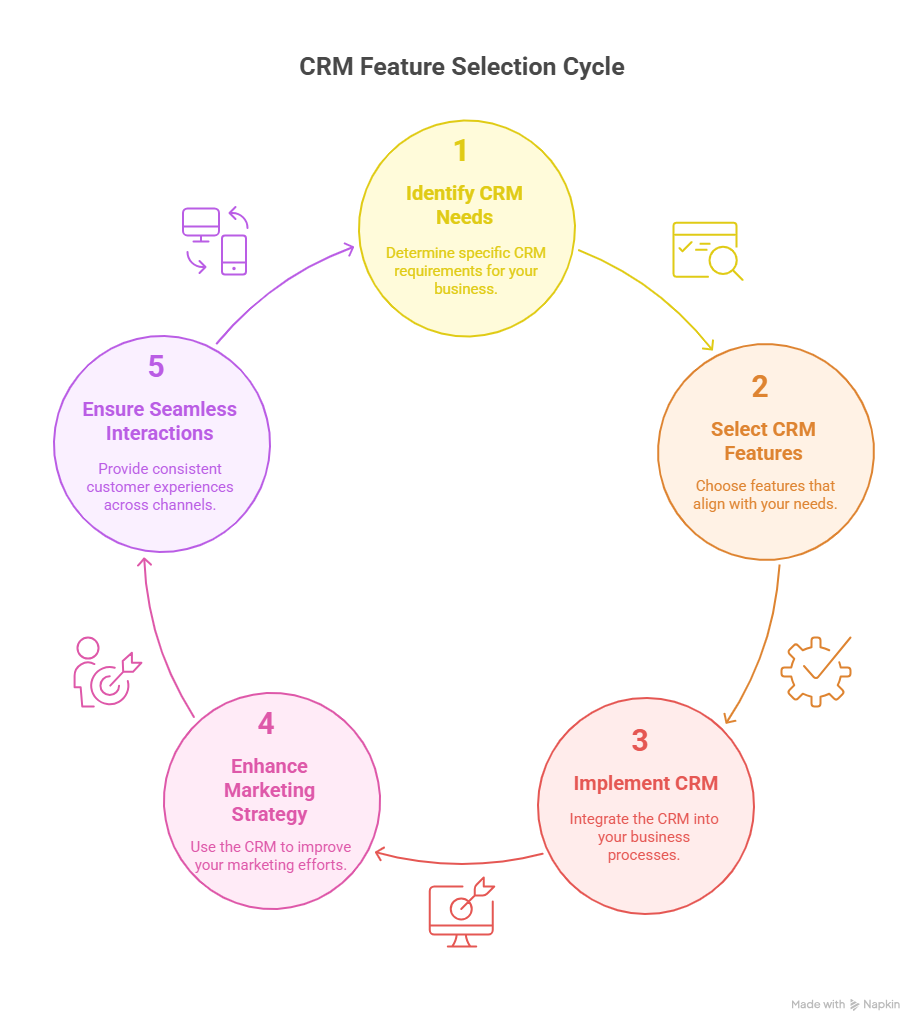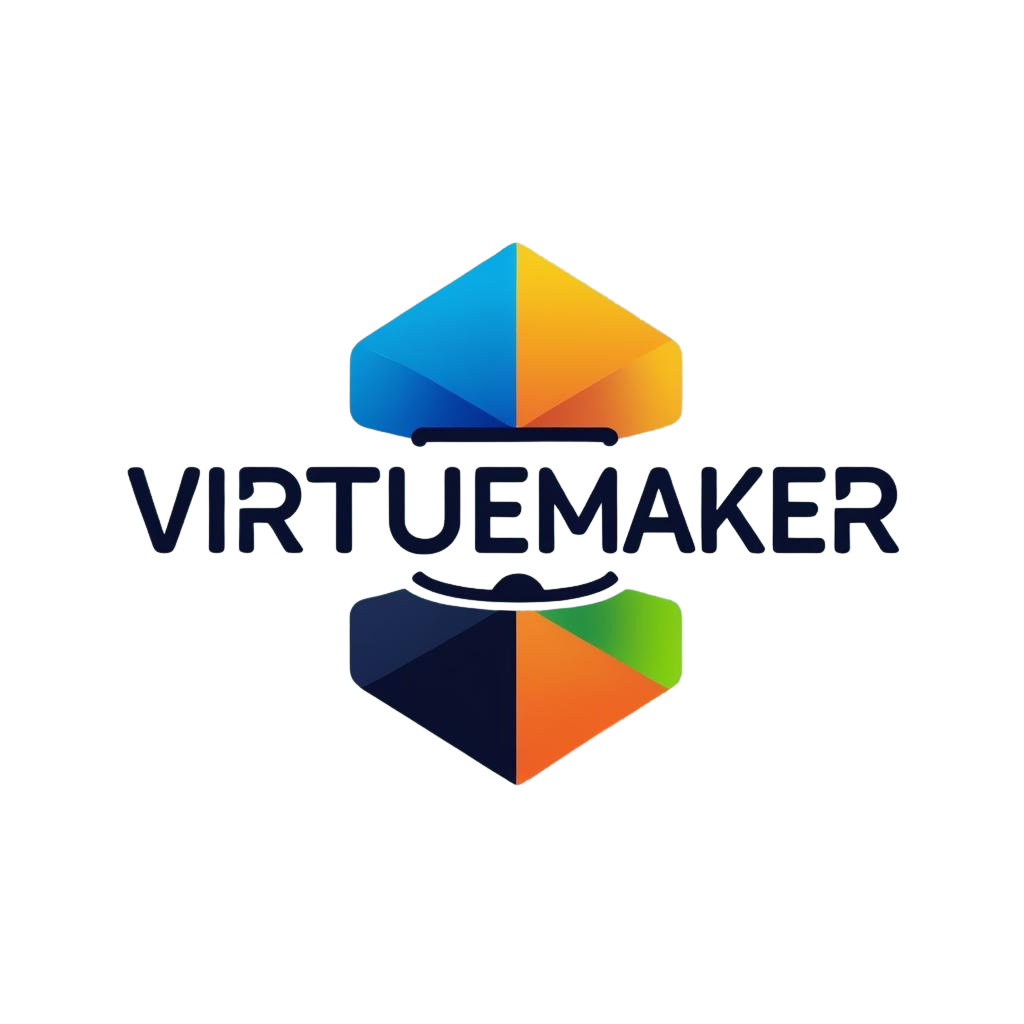In today’s competitive business landscape, effectively managing customer relationships is crucial for success. With the rise of digital channels, businesses must adapt to stay ahead.
Did you know that businesses using customer relationship management systems see a significant improvement in customer engagement and retention? By leveraging the right tools, companies can streamline their efforts across various channels.
Using a multi-channel approach with the right CRM can help businesses improve their overall customer experience. This introduction will explore how CRMs can help businesses manage their campaigns more efficiently.
Understanding Multi-Channel Marketing in Today’s Digital Landscape
With the rise of digital marketing solutions, businesses are now able to implement cross-channel marketing strategies more effectively than ever. This shift has transformed the way companies interact with their customers, making it essential to understand the dynamics of multi-channel marketing.
The Evolution of Customer Engagement Across Platforms
Customer engagement has undergone a significant transformation across various platforms. The proliferation of social media, email, and mobile apps has created multiple touchpoints where businesses can interact with their customers. This evolution has made it imperative for companies to adopt a multi-channel approach to stay relevant and competitive.
Why Integrated Channel Management Matters
Integrated channel management is crucial because it allows businesses to provide a seamless customer experience across different platforms. By synchronizing their marketing efforts across channels, companies can ensure consistent messaging, enhance customer engagement, and ultimately drive sales. This integrated approach is key to maximizing the potential of multi-channel marketing.
The Power of Multi-Channel Marketing CRM for Business Growth
By leveraging the power of multi-channel marketing CRM, businesses can drive growth, enhance customer satisfaction, and stay ahead of the competition. A robust CRM solution enables companies to manage customer interactions across various channels, providing a unified view of customer data and behavior.
This centralized approach allows businesses to tailor their marketing efforts, improving the overall customer experience and fostering loyalty. With an integrated marketing platform, companies can streamline their marketing processes, reducing the complexity associated with managing multiple channels.
Centralizing Customer Data Across Touchpoints
Centralizing customer data is crucial for effective multi-channel marketing. By aggregating data from various touchpoints, businesses can gain a deeper understanding of their customers’ preferences and behaviors. This enables them to create targeted marketing campaigns that resonate with their audience.
Using marketing automation tools, companies can automate routine tasks, freeing up resources to focus on high-value activities such as strategy development and creative content creation.
Breaking Down Communication Silos
Communication silos can hinder a company’s ability to deliver a cohesive customer experience. By implementing a multi-channel marketing CRM, businesses can break down these silos, ensuring that all teams are aligned and working towards a common goal.
This integrated approach enables companies to respond promptly to customer inquiries, providing a seamless experience across all touchpoints. As a result, businesses can improve customer satisfaction, driving loyalty and ultimately, revenue growth.
Essential Features to Look for in a Cross-Channel CRM Solution
To maximize your customer engagement platform’s potential, you need to look for specific CRM features. A well-chosen CRM can significantly enhance your omni-channel marketing strategy by ensuring seamless customer interactions across various channels.

Seamless Channel Integration Capabilities
A cross-channel CRM should integrate effortlessly with multiple marketing channels, including social media, email, and SMS. This integration enables businesses to manage customer interactions across different platforms from a single dashboard.
Automation and Workflow Tools
Automation is key to streamlining marketing processes. Look for a CRM that offers robust automation and workflow tools to reduce manual tasks and enhance efficiency.
Customer Journey Mapping
Understanding the customer journey is crucial for effective marketing. A good CRM should allow you to map customer journeys, identifying touchpoints and opportunities for engagement.
Analytics and Performance Tracking
To measure the success of your marketing efforts, you need analytics and performance tracking capabilities. This feature helps in making data-driven decisions to optimize your marketing strategy.
- Seamless integration with multiple channels
- Advanced automation and workflow tools
- Customer journey mapping capabilities
- Comprehensive analytics and performance tracking
By focusing on these essential features, businesses can select a cross-channel CRM solution that enhances their marketing strategy and improves customer engagement.
Salesforce Marketing Cloud: Enterprise-Grade Multi-Channel Solution
In the realm of multi-channel marketing, Salesforce Marketing Cloud is a powerful tool for enterprise-level businesses. It offers a comprehensive suite of marketing tools that enable companies to manage their customer engagement across various channels effectively.
Overview
Salesforce Marketing Cloud is designed to help businesses personalize customer experiences across multiple touchpoints. It provides a unified platform for managing customer journeys, from email and mobile messaging to social media and advertising.
Pros
- Advanced Personalization: Enables businesses to create highly personalized customer experiences.
- Multi-Channel Engagement: Supports engagement across email, mobile, social, and web channels.
- Robust Analytics: Offers detailed insights into customer behavior and campaign performance.
Cons
- Complexity: Can be complex to implement and manage, requiring significant expertise.
- Cost: Pricing can be prohibitively expensive for smaller businesses.
Features
Key features include Journey Builder for orchestrating customer journeys, Email Studio for email marketing, and Social Studio for social media management. These features help businesses deliver cohesive, multi-channel marketing campaigns.
By leveraging Salesforce Marketing Cloud, enterprises can enhance their multi-channel marketing efforts, driving better customer engagement and ultimately, business growth.
HubSpot Marketing Hub: Integrated Platform for Growing Businesses
For growing businesses, HubSpot Marketing Hub offers a comprehensive solution to manage marketing efforts across various channels. This integrated platform is designed to help businesses streamline their marketing processes, improve customer engagement, and ultimately drive growth.
Overview
HubSpot Marketing Hub is part of the HubSpot ecosystem, providing businesses with a robust set of tools to manage their digital marketing efforts. It includes features for email marketing, social media management, lead generation, and analytics, all aimed at helping businesses attract, engage, and delight their customers.
Pros
The platform offers several key benefits, including ease of use, comprehensive analytics, and seamless integration with other HubSpot tools. This makes it an ideal choice for businesses looking to simplify their marketing operations.
Cons
While HubSpot Marketing Hub is a powerful tool, it may have a steep learning curve for some users, particularly those without prior experience with marketing automation platforms. Additionally, the cost may be a consideration for very small businesses or startups.
Features
Key features of HubSpot Marketing Hub include advanced email marketing automation, social media scheduling, and lead scoring. The platform also provides detailed analytics and reporting tools, enabling businesses to track their performance and make data-driven decisions.
| Feature | Description | Benefit |
|---|---|---|
| Email Marketing Automation | Automate email campaigns based on customer behavior | Personalized customer engagement |
| Social Media Scheduling | Schedule social media posts in advance | Saves time and ensures consistency |
| Lead Scoring | Score leads based on their interactions with your content | Helps identify high-quality leads |
Zoho CRM: Affordable Multi-Channel Marketing Platform
Zoho CRM emerges as a viable solution for businesses seeking to implement cross-channel marketing without hefty investments. It offers a comprehensive suite of tools designed to manage customer relationships across multiple channels effectively.
Overview
Zoho CRM provides an integrated marketing platform that enables businesses to manage their sales, marketing, and customer support functions from a single interface. This integration facilitates a unified view of customer interactions, enhancing the overall customer experience.
Key to its success is the ability to automate workflows, track customer interactions, and analyze sales data, all of which contribute to a more streamlined and efficient operation.
- Affordable pricing plans suitable for businesses of all sizes
- Seamless integration with other Zoho apps and third-party applications
- Robust automation capabilities to streamline sales and marketing processes
Cons
- Initial setup and configuration can be complex
- Limited advanced features compared to some high-end CRM solutions
- Customer support could be more responsive
Features
- Multi-channel communication tracking
- Customizable dashboards and reporting
- Sales forecasting and pipeline management
By leveraging these features, businesses can enhance their cross-channel marketing efforts, ensuring a cohesive and engaging customer experience across all touchpoints.
ActiveCampaign: Automation-Focused Customer Experience Platform
In the realm of customer experience platforms, ActiveCampaign stands out with its automation-focused approach. This platform is designed to help businesses deliver personalized customer experiences through advanced marketing automation tools.
Overview
ActiveCampaign is a comprehensive customer experience platform that leverages automation to enhance customer engagement. It supports businesses in implementing an effective omni-channel marketing strategy by automating workflows, personalizing customer interactions, and analyzing campaign performance.
Pros
- Advanced Automation: Simplifies complex marketing tasks.
- Personalization: Enables tailored customer experiences.
- Multi-Channel Support: Engages customers across various platforms.
Cons
- Learning Curve: Requires time to master its features.
- Cost: Pricing may be steep for small businesses.
Features
- Automation Workflows: Streamlines marketing processes.
- Email Marketing: Offers advanced email personalization.
- Customer Journey Mapping: Visualizes customer interactions.
By utilizing ActiveCampaign, businesses can significantly enhance their customer experience and marketing efficiency. Its robust automation capabilities make it an ideal choice for companies looking to implement a sophisticated omni-channel marketing strategy.
Mailchimp: From Email Marketing to Complete CRM Solution
As a pioneer in email marketing, Mailchimp has evolved to offer a complete customer engagement platform. This transformation enables businesses to manage their customer interactions across multiple channels more effectively.
Overview of Mailchimp’s Capabilities
Mailchimp’s evolution into a comprehensive CRM solution has equipped it with a wide range of tools. These tools support businesses in enhancing their customer engagement strategies and streamlining their marketing efforts.
Pros
- User-friendly interface: Easy to navigate for users of all skill levels.
- Multi-channel support: Allows businesses to engage with customers across various platforms.
- Automation features: Enables the automation of repetitive tasks, saving time and increasing efficiency.
Cons
- Limited advanced features: Some users may find that Mailchimp lacks certain advanced features available in other CRMs.
- Customer support: There have been reports of inconsistent customer support quality.
Features
- Email marketing automation: Allows for personalized and timely email campaigns.
- Customer journey mapping: Helps in understanding and visualizing customer interactions.
- Analytics and reporting: Provides insights into campaign performance and customer behavior.
Keap (Infusionsoft): Small Business Multi-Channel Marketing CRM
Keap, formerly known as Infusionsoft, is a robust CRM solution designed for small businesses to manage their customer relationships and multi-channel marketing campaigns effectively. As a comprehensive customer relationship management tool, Keap helps businesses streamline their marketing, sales, and customer service processes.
Overview
Keap is tailored to meet the needs of small businesses, offering a range of features that simplify customer management and marketing automation. With its user-friendly interface, businesses can easily navigate and utilize the platform to enhance their customer engagement strategies.
Pros
- Comprehensive CRM Features: Keap offers a wide range of CRM features that help businesses manage customer interactions across multiple channels.
- Marketing Automation: The platform’s automation capabilities enable businesses to streamline their marketing efforts, saving time and resources.
- User-Friendly Interface: Keap’s intuitive design makes it easy for businesses to navigate and utilize the platform effectively.
Cons
- Learning Curve: While the interface is user-friendly, mastering all the features and capabilities of Keap can take time.
- Cost: As a comprehensive CRM solution, Keap may be priced on the higher side for very small businesses or startups.
Features
| Feature | Description | Benefit |
|---|---|---|
| Contact Management | Centralized management of customer contacts and interactions. | Improved customer insights and engagement. |
| Marketing Automation | Automation of marketing campaigns and workflows. | Streamlined marketing efforts and increased efficiency. |
| Email Marketing | Tools for creating and sending targeted email campaigns. | Enhanced customer communication and engagement. |
Sendinblue: All-in-One Digital Marketing Platform
In the realm of digital marketing, Sendinblue stands out as a versatile all-in-one platform. It offers businesses a comprehensive suite of tools to manage their marketing efforts across various channels.
Overview
Sendinblue is designed to help businesses streamline their digital marketing strategies. It provides a range of features including email marketing, SMS marketing, and marketing automation.
Pros
Some of the key advantages of using Sendinblue include its user-friendly interface, advanced automation features, and comprehensive analytics. These features enable businesses to create and execute effective marketing campaigns.
Cons
While Sendinblue offers numerous benefits, it also has some drawbacks. For instance, some users may find the initial setup process complex, and the customer support could be more responsive.
Features
Sendinblue’s feature set includes:
- Email marketing campaigns
- SMS marketing
- Marketing automation
- Transactional emails
| Feature | Description | Benefit |
|---|---|---|
| Email Marketing | Create and send targeted email campaigns | Enhance customer engagement |
| SMS Marketing | Send SMS messages to customers | Increase open rates |
| Marketing Automation | Automate repetitive marketing tasks | Save time and resources |
Implementing Your Cross-Channel Marketing Strategy with CRM
Implementing a cross-channel marketing strategy with CRM can revolutionize your business’s customer engagement. By integrating your CRM with various marketing channels, you can create a cohesive and personalized customer experience.
Planning Your Channel Integration
Before diving into the implementation, it’s crucial to plan your channel integration carefully. Identify the channels that are most relevant to your audience and business goals. Consider email, social media, SMS, and other channels that can be integrated with your CRM.
Data Migration and Setup Considerations
Data migration is a critical step in implementing your CRM. Ensure that your customer data is accurately transferred and set up in a way that supports your cross-channel marketing efforts. Data cleansing and validation are essential to avoid any discrepancies.
| Channel | Integration Complexity | Benefits |
|---|---|---|
| Medium | Personalized campaigns | |
| Social Media | High | Enhanced customer engagement |
| SMS | Low | High open rates |
Training Your Team for Success
Training your team is vital to ensure they can effectively use the CRM and execute your cross-channel marketing strategy. Provide comprehensive training on the CRM’s capabilities and best practices for channel integration.
Conclusion: Selecting the Right CRM for Your Multi-Channel Marketing Needs
Implementing an effective omni-channel marketing strategy requires a robust customer engagement platform. As discussed, various CRM solutions can help businesses manage campaigns across channels. When selecting a CRM, consider your business needs and goals.
Evaluate the CRM’s ability to integrate with existing tools and channels. Look for features like automation, customer journey mapping, and analytics. Ensure the CRM provides a centralized customer database and breaks down communication silos.
By choosing the right CRM, businesses can enhance customer engagement, improve campaign performance, and drive growth. Consider the scalability and affordability of the CRM, as well as the level of customer support provided.
Ultimately, the right CRM will help businesses succeed in their multi-channel marketing endeavors, fostering stronger customer relationships and driving long-term success.
FAQ
What is a multi-channel marketing CRM, and how can it benefit my business?
A multi-channel marketing CRM is a customer relationship management tool that enables businesses to manage customer interactions across multiple channels, such as email, social media, and phone. By using a multi-channel marketing CRM, businesses can streamline their marketing efforts, improve customer engagement, and gain a unified view of their customer data.
How do I choose the right CRM for my multi-channel marketing needs?
When choosing a CRM for multi-channel marketing, consider factors such as the CRM’s ability to integrate with various channels, its automation and workflow capabilities, customer journey mapping features, and analytics and performance tracking. It’s also essential to assess the CRM’s scalability, user interface, and customer support.
What is the difference between omni-channel and multi-channel marketing?
Omni-channel marketing refers to a seamless customer experience across all channels, where customers can interact with a brand in a cohesive and integrated way. Multi-channel marketing, on the other hand, involves managing customer interactions across multiple channels, but not necessarily in a unified or integrated manner.
Can I use a CRM for marketing automation?
Yes, many CRMs offer marketing automation capabilities, such as automated email campaigns, lead scoring, and workflow automation. By leveraging these features, businesses can streamline their marketing efforts, reduce manual tasks, and improve customer engagement.
How can a CRM help me improve customer engagement?
A CRM can help improve customer engagement by providing a unified view of customer data, enabling personalized marketing efforts, and automating customer interactions. By using a CRM, businesses can gain insights into customer behavior, preferences, and needs, allowing them to tailor their marketing strategies to meet customer expectations.
What is customer journey mapping, and how can it benefit my business?
Customer journey mapping is the process of creating a visual representation of a customer’s interactions with a brand across multiple touchpoints. By using customer journey mapping, businesses can identify pain points, opportunities for improvement, and areas where they can deliver a more personalized customer experience.
Can I integrate my existing marketing tools with a CRM?
Yes, many CRMs offer integration capabilities with various marketing tools, such as email marketing software, social media management tools, and marketing automation platforms. By integrating existing marketing tools with a CRM, businesses can create a seamless and connected marketing ecosystem.

